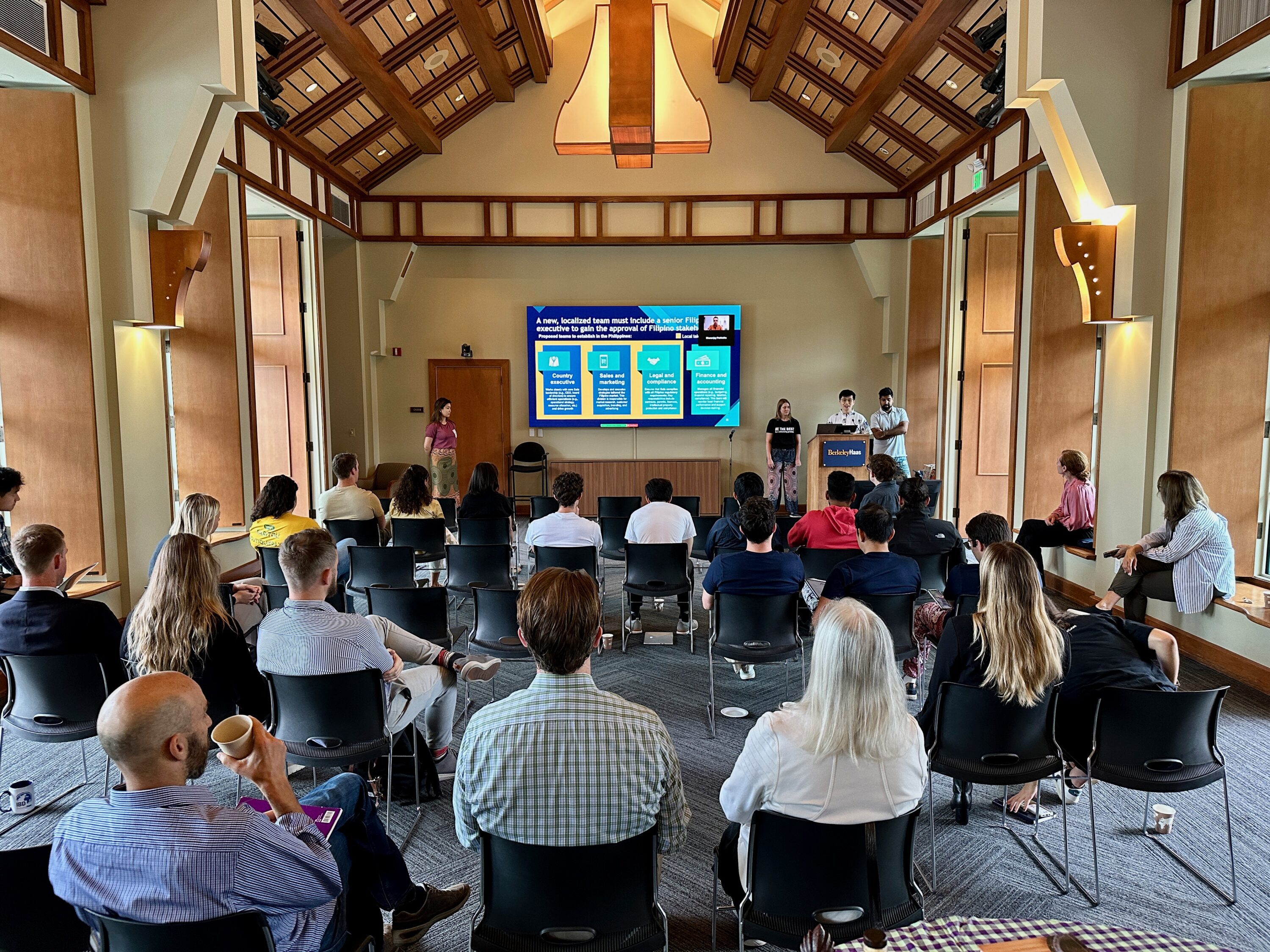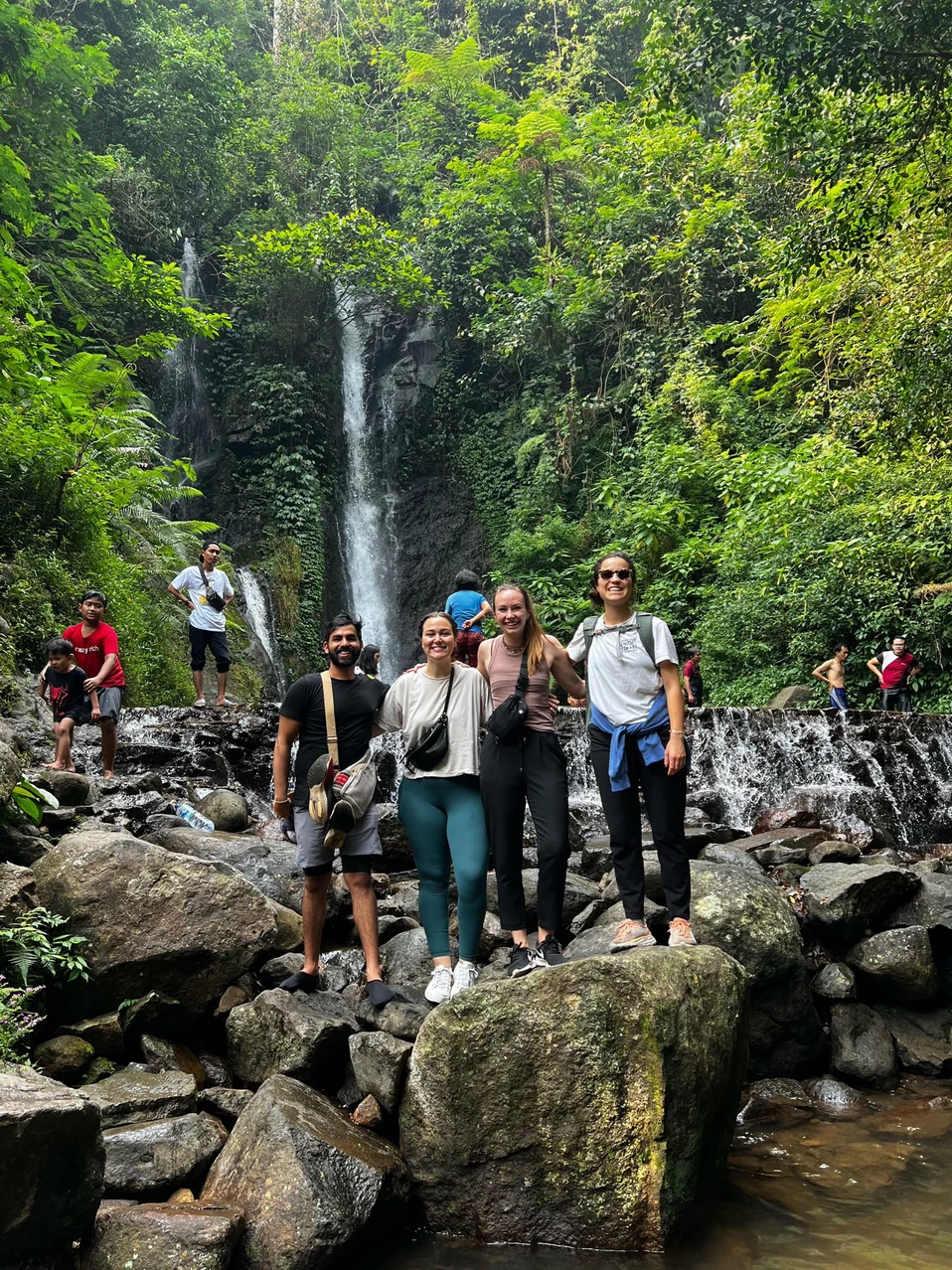IBD Welcomes New Faculty Mentor David Evan Harris to the Spring 2018 IBD Program
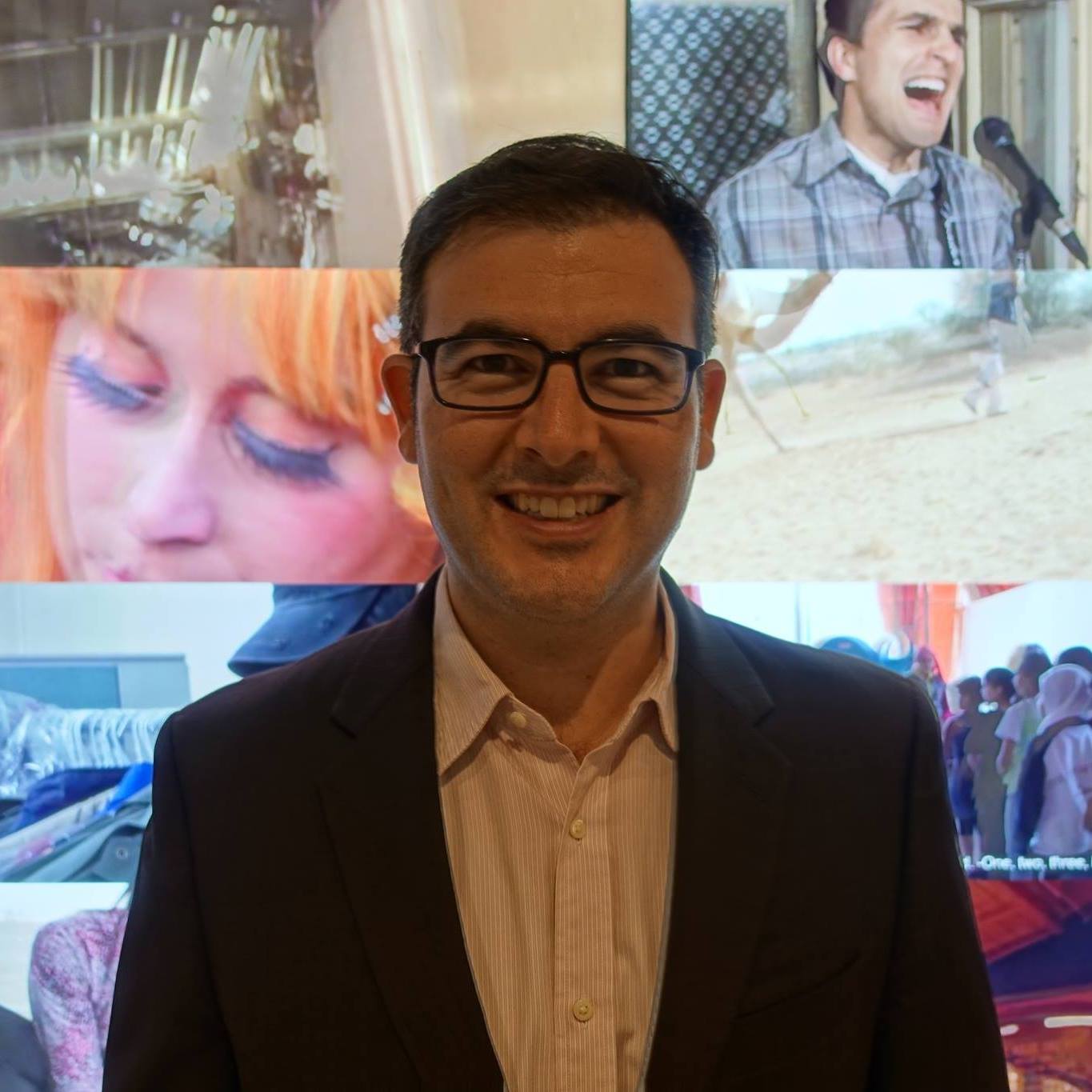
This year we are thrilled to welcome David Evan Harris as the newest member of our Spring IBD Program Faculty Mentor team. We are excited to see David join the IBD family, where he can share his international work experience and passion for social impact. His extensive background and skills will have a positive effect on both our IBD students and our project clients.
David’s interest in international work started when he was an undergraduate at UC Berkeley, and it has continued to drive his career ever since. Two years after graduating from Cal, while living in Brazil, David founded a nonprofit called the Global Lives Project—a video library of life experience around the world, produced by thousands of collaborating filmmakers, photographers, and translators. The Global Lives Project was designed to spark conversations about race, religion, diversity, gender, and class. In a recent article written by UC Berkeley’s Kathleen MacLay, David shared that “Global Lives challenges audiences to reflect deeply about their place in the world and the moral and ethical responsibilities that come with that.” (To read more from MacLay’s article, click here). David’s work with Global Lives Project called on him to make presentations to audiences at the Smithsonian, Harvard, and United Nations University, among other institutions. He has been supported in his work by groups including the National Endowment for the Arts, Rockefeller Foundation, Hewlett Foundation, the Goldman Fund and more.
David also serves as Research Director at the Institute for the Future (IFTF), where he leads research on the future of philanthropy, media, governance and social movements. Building on this research, he has served as an advisor and consultant to dozens of foundations, government agencies, and corporations. His writings have been published by the BBC, The Guardian, Focus on the Global South, Hivos, Alternet and Grist, and his work has been translated into dozens of languages.
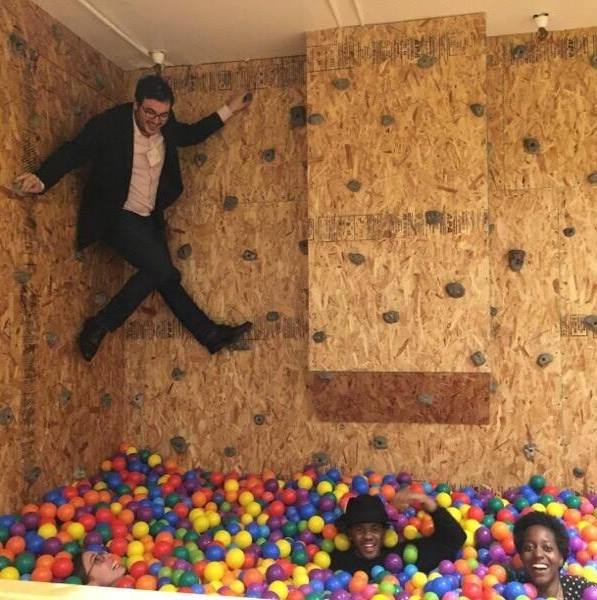
In 2015, David returned to UC Berkeley and added Chancellor’s Public Scholar and Berkeley Haas Lecturer to his long list of professional roles. We recently interviewed David to ask more about his background and what he hopes to bring to the IBD program.
Question: What brought you to Haas?
David Evan Harris: “Whitney Hischier (current Berkeley Haas Lecturer, IBD Faculty Mentor and Faculty Director at Berkeley Executive Education) brought a couple of groups of international executive education students to IFTF in Palo Alto. After two of those sessions, Whitney and I had a conversation about teaching a class at Haas in scenario planning and that was my first course at Haas; Scenario Planning and the Futures Thinking. I still teach that course -which is an Evening Weekend course for MBAs. I also teach two classes in the undergrad program; Social Movements and Social Media and Civic Technology. Civic Technology is a freshman and sophomore seminar so I get to work with the freshest minds on campus. I am excited to add IBD as my fourth class.”
Question: Tell us about your career and how it relates to your business experience?
David Evan Harris: “I started a nonprofit organization which is the Global Lives Project. It is a unique nonprofit in that, it has no employees but thousands of volunteers all over the world. Those volunteers have produced over 500 hours of footage of 20 different people from 17 countries for 24 hours straight. It is on exhibit right now at various Museums around Berkeley (click here for the schedule) and will be on display at Chou Hall in the spring. The project has a big part of my life for 14 years which makes me a strange kind of entrepreneur, a nonprofit founder and a founder of a network organization. I have also been very lucky to work with IFTF and had the opportunity to work with a lot of very large institutions, helping them do strategic planning and think about how they can be responsible players in shaping the long-term future of the world.”
Question: How are you feeling about being a part of the IBD Program?
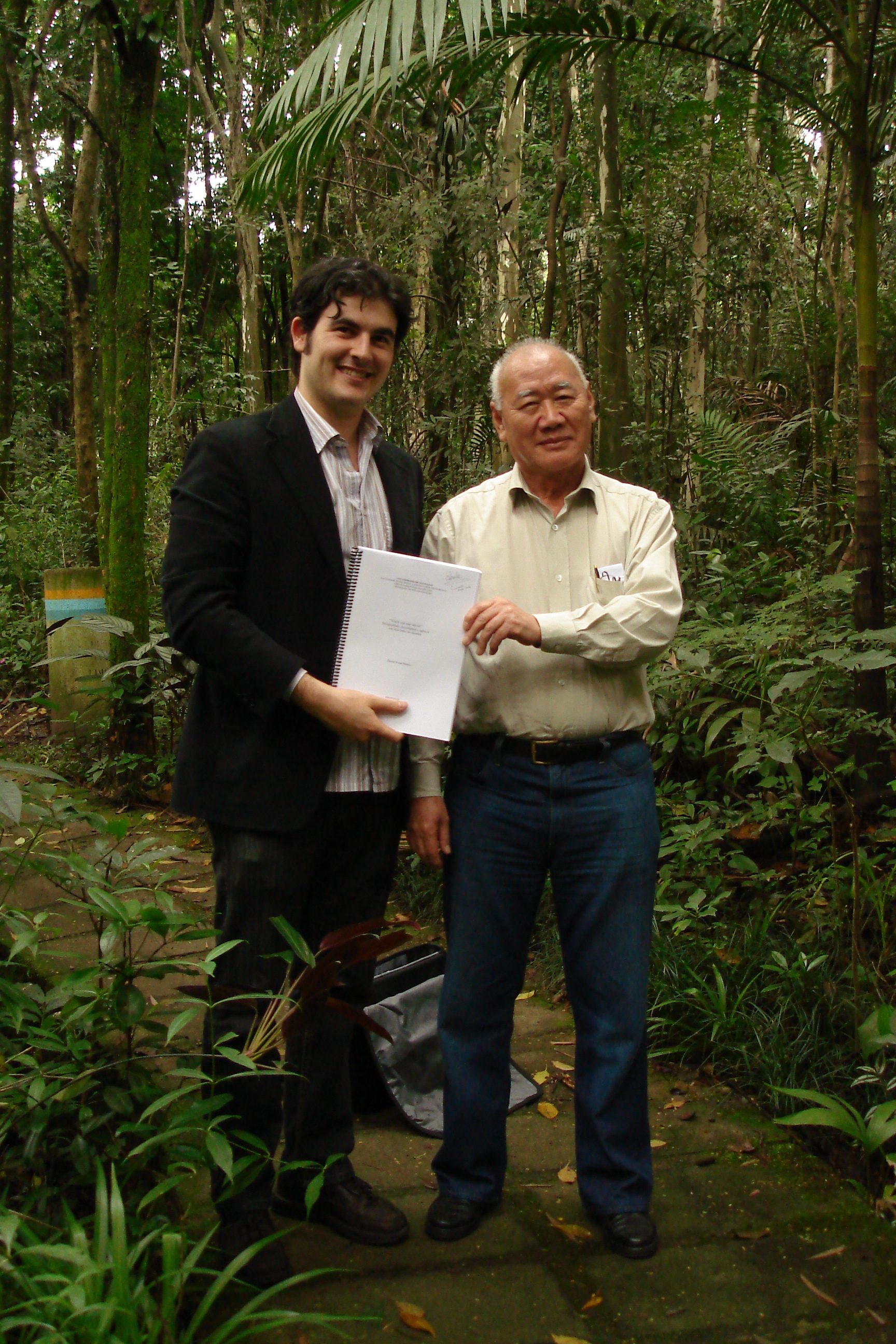
David Evan Harris: I am really excited about joining the IBD program as I have been hearing great things about it from people at Haas for years now. I am also excited to be working with this team, especially with Whitney, as she was one of the first contacts I had here at Haas. I am also very excited about the way that IBD fits into the work I have been doing with public sector and nonprofit organizations. After I graduated from Berkeley as an undergrad, where I studied Political Economy of Development and Environment, which was the focus of my major in the Interdisciplinary Studies Program, I lived in Brazil for three years. I studied sociology at the University of São Paulo. As an undergrad, I also studied abroad on the International Honors Program in five different countries; Tanzania, India, the Philippines, Mexico and the U.K. I have also been very lucky through my work with the Global Lives Project and IFTF to travel to and do work in dozens of countries all over the world. The idea of being part of this international program within Haas is really thrilling for me, especially because study abroad and international work has had such an immense influence on making me the person I am today.”
Question: Are there any specific learnings or skill sets that you bring to the program that you want MBA to take full advantage of?
David Evan Harris: “Yes, absolutely, as a student from an American university, it is very important when you work internationally that you bring a lot of humility to that work. It is essential that you acknowledge that even though your clients are hiring you because they see you as bringing cutting-edge knowledge and experience to the work, you really need to listen very carefully and do everything you possibly can to understand the culture where you are working. You must also understand that, as a visitor, you can’t truly understand the culture where you are working, and you must be there as a supporter and not an authoritarian consultant who acts like they know everything. That is one thing I want to bring to the program. I also have a lot of experience working with NGOs, nonprofit organizations and with public-sector groups in other parts of the world. I am excited to work with students who are interested in working with those types of organizations. I hope to develop their skills in offering business expertise, which is very, very, much needed in those sectors, and in a way that is aligned with the public-minded missions of people and institutions doing that work.”
Question: How do you find time for everything you do?
David Evan Harris: “Over the years I have managed to juggle a lot of different relationships with different institutions. I have different techniques but the key thing is to be part of great institutions that have really valued the work that I do and made it possible to be involved with them in ways that fit into my jigsaw puzzle of a schedule.”
Question: Do you have time to do anything that is not work-related?
David Evan Harris: “Most of the time when I have free time, I tend to spend it with my twin seventeen-month-old children. They are a joy and educational opportunity for me. That takes up most of my non- working time and I also enjoy getting some sleep when I can. I also try to make time to do the other things. I love to hike and sometimes I take my kids along in our off-road stroller. You might also hear me zipping up to campus on my electric bicycle, which is a form of transportation and also a form of recreation and exercise.”
Question: Where is your favorite place to visit in the world?
David Evan Harris: “I have a long-standing special relationship with Brazil. It is such a big country that every time I go there, I see new and learn new things. After living there for three years, Brazil became a part of me and part of my identity. Whenever I have a chance or the option of where I want to go, I go back to Brazil.”
Question: Is there a place you would like to visit in the world that you haven’t been to yet?
David Evan Harris: “I have been trying to get to Cuba. I am fascinated by Cuba, Cuban culture, economy, politics and I am very interested in going at some point.”
Question: Do you have a defining principle that you are working on right now and plan to apply to your role at IBD?
David Evan Harris: “Beyond Yourself” is definitely my favorite defining principle. In my teaching work at Berkeley Haas, I constantly strive to surface the ways in which movements for social change are so deeply enmeshed in economic relationships and business challenges. Non-profit organizations that have sprung up parallel to grassroots movements like #MeToo and #BlackLivesMatter are critically important to understand as management challenges. Fundraising is almost always a struggle for these organizations, as are management and measurement of outcomes. The specifics of these challenges are often distinct from those faced by for-profit companies and merit systematic study, analysis and engagement from faculty and students at Haas. In my work this semester with IBD, coaching teams working with non-profit and for-benefit corporations, I intend to bring the “Beyond Yourself” ethos together with rigorous applied scholarship and consulting. I hope that this experience will fit into a lifelong engagement on the part of my students with the businesses—both non-profit, for-profit, and the many shades of gray emerging in-between—that are guided not by the pursuit of self-enrichment of their own leaders, but on the world beyond.”
This concludes our interview with our newest IBD Faculty Mentor, David Evan Harris. Thank you, David, for going “Beyond Yourself” in all the work you do at the IFTF, at the Global Lives Project, and at Berkeley Haas. We look forward to the impact you will make on the Spring 2018 IBD program over the course of the next few months.

